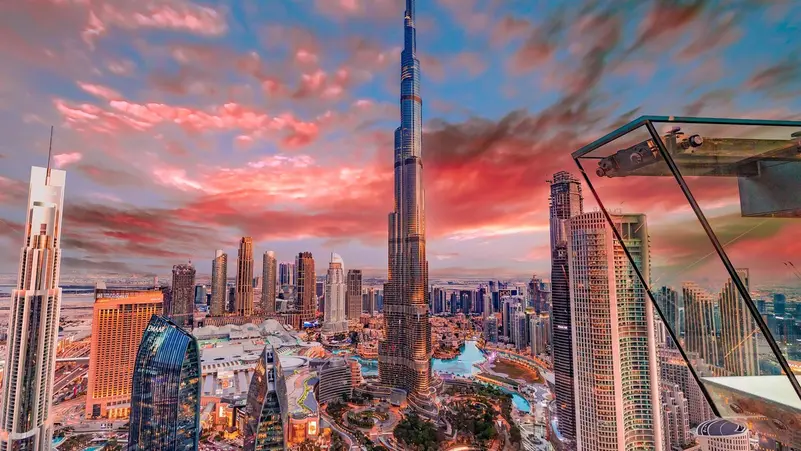
Dubai Property Market Analysis
The Dubai property market has seen a dynamic evolution over the past few decades. Known for its rapid growth, luxurious developments, and international appeal, the market continues to offer opportunities and challenges for investors, homeowners, and developers. Here’s a comprehensive analysis of the current trends and factors shaping the Dubai property market in 2024:
1. Market Recovery Post-Pandemic
- Resurgence in Demand: After the initial slowdown due to the COVID-19 pandemic, the Dubai property market has rebounded significantly. Demand has surged, particularly for luxury properties and villas, driven by high-net-worth individuals seeking larger living spaces, and foreign investors.
- Property Price Increases: Dubai has seen steady growth in property prices since 2021. According to recent reports, villa prices have increased by as much as 30%, while apartment prices have risen by 15-20%, depending on the location.
2. Shift in Property Preferences
- Villas and Townhouses in High Demand: Due to the pandemic, buyers and tenants have shown a growing preference for larger homes with outdoor spaces. Areas like Arabian Ranches, Palm Jumeirah, and Dubai Hills Estate are particularly popular for villa investments.
- Luxury Market Boom: Dubai’s luxury property market has boomed, with high-end developments such as The Palm Jumeirah, Emirates Hills, and Dubai Marina attracting international buyers. The luxury sector has been fueled by wealthy expatriates, particularly from Europe, China, and India, seeking second homes or investment properties.
- Affordable Housing: While the luxury sector thrives, there’s also a steady demand for affordable housing options. Areas like Jumeirah Village Circle (JVC) and Dubai Sports City are popular among mid-income buyers and renters due to relatively affordable prices and rental yields.
3. Rental Market Trends
- High Rental Yields: Dubai continues to offer some of the most attractive rental yields in the world. Depending on the location, investors can expect rental yields ranging between 5% and 8%, especially in areas like Dubai Marina, Business Bay, and Jumeirah Village Circle (JVC).
- Short-Term Rentals Growth: The short-term rental market has grown, particularly in high-tourism areas like Downtown Dubai and Palm Jumeirah. Platforms such as Airbnb have made it easier for property owners to capitalize on Dubai’s booming tourism sector.
4. Popular Investment Areas
- Downtown Dubai: Home to iconic landmarks like the Burj Khalifa and Dubai Mall, this area remains a prime spot for property investment due to its high demand and prestige.
- Dubai Marina: Known for its waterfront properties, Dubai Marina is one of the most sought-after areas for both short-term and long-term rentals.
- Jumeirah Village Circle (JVC): Offers a more affordable entry point into the Dubai property market, making it popular for both investors and renters seeking reasonable prices and good rental returns.
- Palm Jumeirah: One of Dubai’s most luxurious locations, it continues to attract ultra-high-net-worth individuals looking for high-end waterfront villas and apartments.
5. Visa and Ownership Benefits
- Golden Visa: In an effort to attract more foreign investors, Dubai has introduced long-term visas for property buyers. A property investment of AED 2 million or more qualifies investors for the 10-year Golden Visa, a major draw for international buyers.
- Freehold Ownership for Expats: Dubai allows foreign investors to purchase property in designated freehold areas, giving expats the right to fully own, sell, or lease property without local sponsorship.
6. Supply vs. Demand
- Oversupply Concerns: One of the biggest challenges for Dubai’s property market is the risk of oversupply, especially in the apartment sector. While new developments continue to come to market, the government and developers are working on reducing the risk of oversupply by slowing down new launches.
- Supply of Affordable Homes: There is still unmet demand for affordable housing, particularly among mid-income earners. Developers are increasingly focusing on launching projects in emerging areas with more affordable options.
7. Government Regulations and Policies
- Real Estate Regulatory Authority (RERA): RERA continues to play a pivotal role in safeguarding the interests of investors and ensuring transparency in the real estate market. Laws such as the requirement of escrow accounts for developers have enhanced buyer confidence.
- Rental Caps and Tenant Rights: Rental laws in Dubai are designed to protect tenants from sudden, significant rent hikes. The government has implemented a rental cap, allowing landlords to raise rents only within a certain limit, based on the current market conditions.
8. Macro-Economic Factors
- Strong Economic Growth: The UAE economy has been resilient and is forecasted to grow steadily. Dubai’s diversification away from oil, focusing on sectors like tourism, technology, and finance, has strengthened the property market.
- Expo 2020 Legacy: The successful completion of Expo 2020 has positively impacted Dubai’s real estate market by increasing global visibility and attracting foreign investments. The legacy of Expo has continued to drive demand in residential and commercial properties.
9. Sustainability and Green Developments
- Sustainable Real Estate: With growing environmental awareness, Dubai developers are increasingly focusing on sustainable and green developments. Projects like The Sustainable City and Masdar City showcase eco-friendly infrastructure, energy-efficient homes, and a sustainable lifestyle.
- Smart Cities: Dubai’s vision of becoming a smart city is driving investment in smart and sustainable infrastructure, attracting tech-savvy buyers and investors interested in the long-term viability of their investments.
10. Potential Risks
- Market Cyclicality: Like any property market, Dubai’s market is cyclical. Investors need to be mindful of market downturns and fluctuations, especially when investing in off-plan projects.
- Service Charges: High-end properties, particularly in luxury developments, can come with significant service charges that may impact overall returns for investors.
- Global Economic Conditions: Global economic events, such as interest rate changes or recessions, can affect foreign investments in Dubai’s property market.
Conclusion
The Dubai property market remains one of the most attractive destinations for real estate investors, offering high rental yields, tax-free returns, and strong long-term prospects. While the market has seen significant recovery and growth, investors should remain cautious of potential risks such as oversupply, market volatility, and high service charges.






